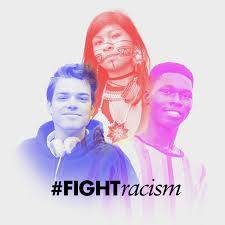Confronting Ethnical Violence and Discrimination: Building a More Inclusive Society
Ethnical violence and discrimination are pervasive societal issues that continue to inflict harm and sow division in communities around the world. Rooted in prejudice, stereotypes, and power dynamics, these forms of discrimination perpetuate inequalities, marginalize vulnerable populations, and undermine social cohesion.
One of the most troubling aspects of ethnical violence and discrimination is their deep-seated nature, often stemming from historical injustices, systemic racism, and intergenerational trauma. Minority groups, indigenous peoples, and immigrants are disproportionately affected by these forms of discrimination, facing barriers to equal opportunities, access to resources, and full participation in society.
In recent years, there has been a concerning rise in ethnical violence, fueled by xenophobia, nationalist ideologies, and economic insecurities. Hate crimes, racial profiling, and discriminatory policies target individuals based on their ethnicity, race, or cultural background, creating a climate of fear, distrust, and hostility within communities.
To address the root causes of ethnical violence and discrimination, concerted efforts are needed at all levels of society. Education plays a crucial role in challenging biases, promoting cultural understanding, and fostering empathy towards individuals from diverse backgrounds. Schools, workplaces, and public institutions can implement diversity training programs, promote inclusive policies, and amplify minority voices to counter stereotypes and prejudices.
Community engagement, dialogue, and solidarity are also essential in building bridges across ethnic divides and promoting social harmony. By fostering connections, addressing grievances, and advocating for justice and equality, we can create a more inclusive and equitable society where differences are embraced as strengths rather than sources of conflict.
In conclusion, confronting ethnical violence and discrimination requires a collective commitment to upholding human rights, respecting diversity, and working towards a common vision of a society where all individuals are valued and treated with dignity. By standing together against hatred and intolerance, we can create a more just and compassionate world where every person has the opportunity to thrive and contribute to the richness of our collective tapestry.



No comments yet
Be the first to share your thoughts!